Where Most People Come to Learn A Language
Our blog covers language learning tips and hacks we've acquired over the years


What Does 'Bunk' Mean in English Slang?
You've encountered native English speakers using "bunk" in conversation, but the meaning remains elusive? The confusion is understandable. "Bunk" operates across multiple semantic territories in English, functioning as both noun and verb with distinct contextual applications that extend far beyond its literal sleeping accommodation origins. "Bunk" primarily signifies nonsense, deception, or something fundamentally untrue when used as a noun. As a verb, it means to skip, avoid, or abandon something entirely. However, these surface definitions barely scratch the linguistic complexity that makes this word particularly challenging for non-native speakers to master.
![What Does "Guten Tag" Mean? [German]](/_next/image?url=https%3A%2F%2Fcdn.sanity.io%2Fimages%2F147z5m2d%2Fproduction%2F9c31f7f50741552fd603eb448647cbe297c089c7-2240x1260.png&w=3840&q=75)

What Does "Guten Tag" Mean? [German]
You encounter German speakers using "guten tag" constantly, yet the depth of this seemingly simple greeting remains unclear? Understanding "guten tag" requires recognizing that German greetings operate on layers of social protocol that English speakers often miss. In German, "guten tag" translates to "good day" and serves as the primary formal greeting used throughout most of the day, typically from late morning until early evening. The misconception that "guten tag" simply means "hello" undermines the sophisticated cultural framework embedded within German social interactions. This greeting carries temporal specificity, social hierarchy awareness, and regional variations that determine when, how, and with whom you deploy it effectively.
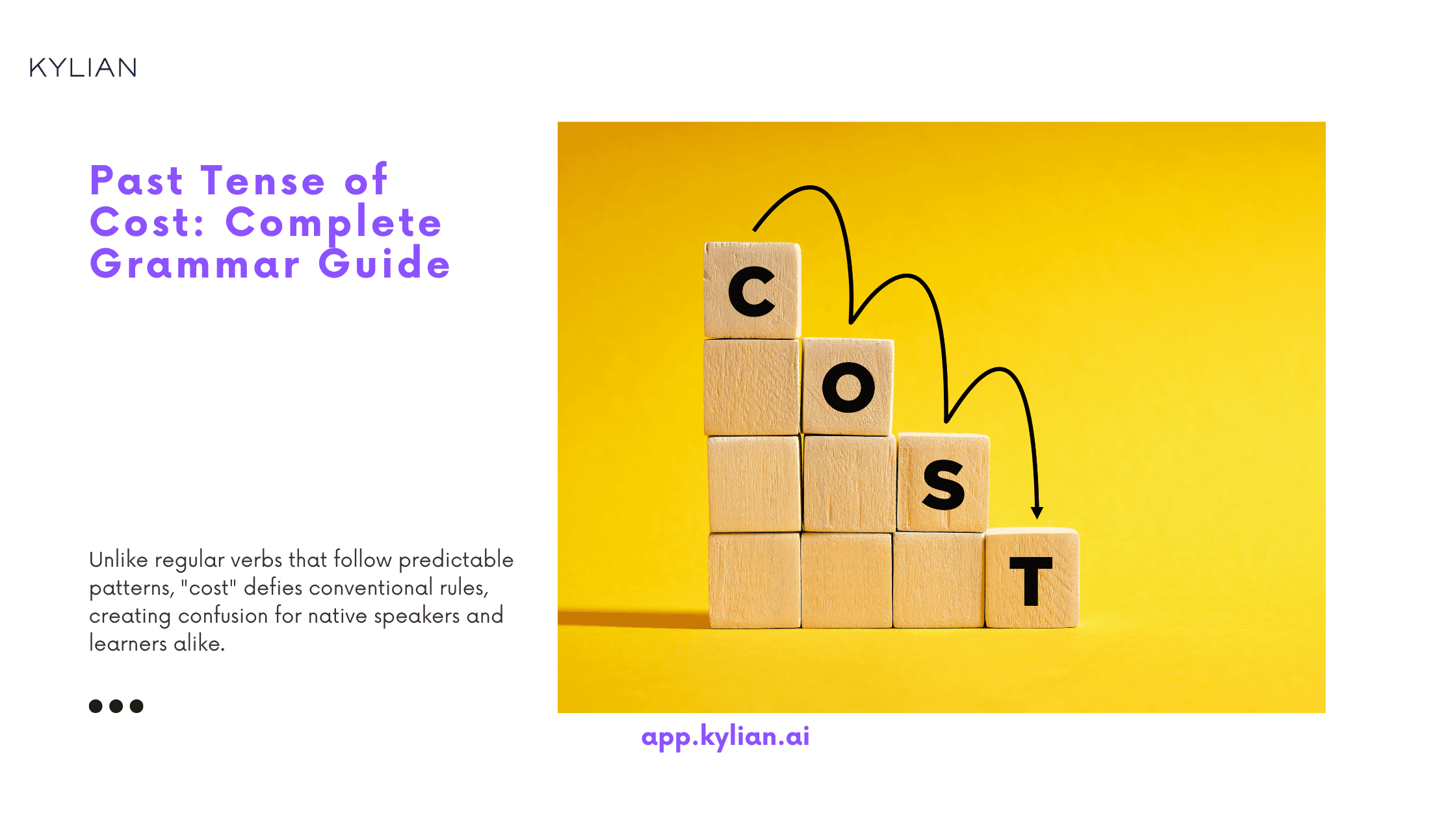

Past Tense of Cost: Complete Grammar Guide
The word "cost" presents one of English grammar's most persistent challenges. Unlike regular verbs that follow predictable patterns, "cost" defies conventional rules, creating confusion for native speakers and learners alike. This irregularity matters because "cost" appears in everyday conversation, business communication, and academic writing with remarkable frequency. Understanding the past tense of "cost" requires recognizing its dual nature: as an irregular verb that maintains its form across tenses in most contexts, and as a regular verb in specific professional scenarios. This distinction shapes how we communicate about expenses, pricing, and financial planning across different English-speaking regions.
![30+ Powerful Synonyms for However [Formal & Casual]](/_next/image?url=https%3A%2F%2Fcdn.sanity.io%2Fimages%2F147z5m2d%2Fproduction%2F6d056e0ab9717d0c2bc4c699685876fa3facbbf7-2240x1260.png&w=3840&q=75)

30+ Powerful Synonyms for However [Formal & Casual]
Strong writing demands precise transitions that guide readers through your arguments without stumbling blocks. The word "however" serves this purpose, but overusing it creates monotonous prose that weakens your message's impact. Professional writers understand that transition variety separates compelling content from forgettable text. When you master alternatives to "however," you unlock the ability to craft smoother arguments, maintain reader engagement, and demonstrate sophisticated language control. This article provides 50+ tested synonyms for "however" across formal, casual, and academic contexts. Each alternative includes practical usage examples, pronunciation guides, and strategic application advice to elevate your writing immediately.
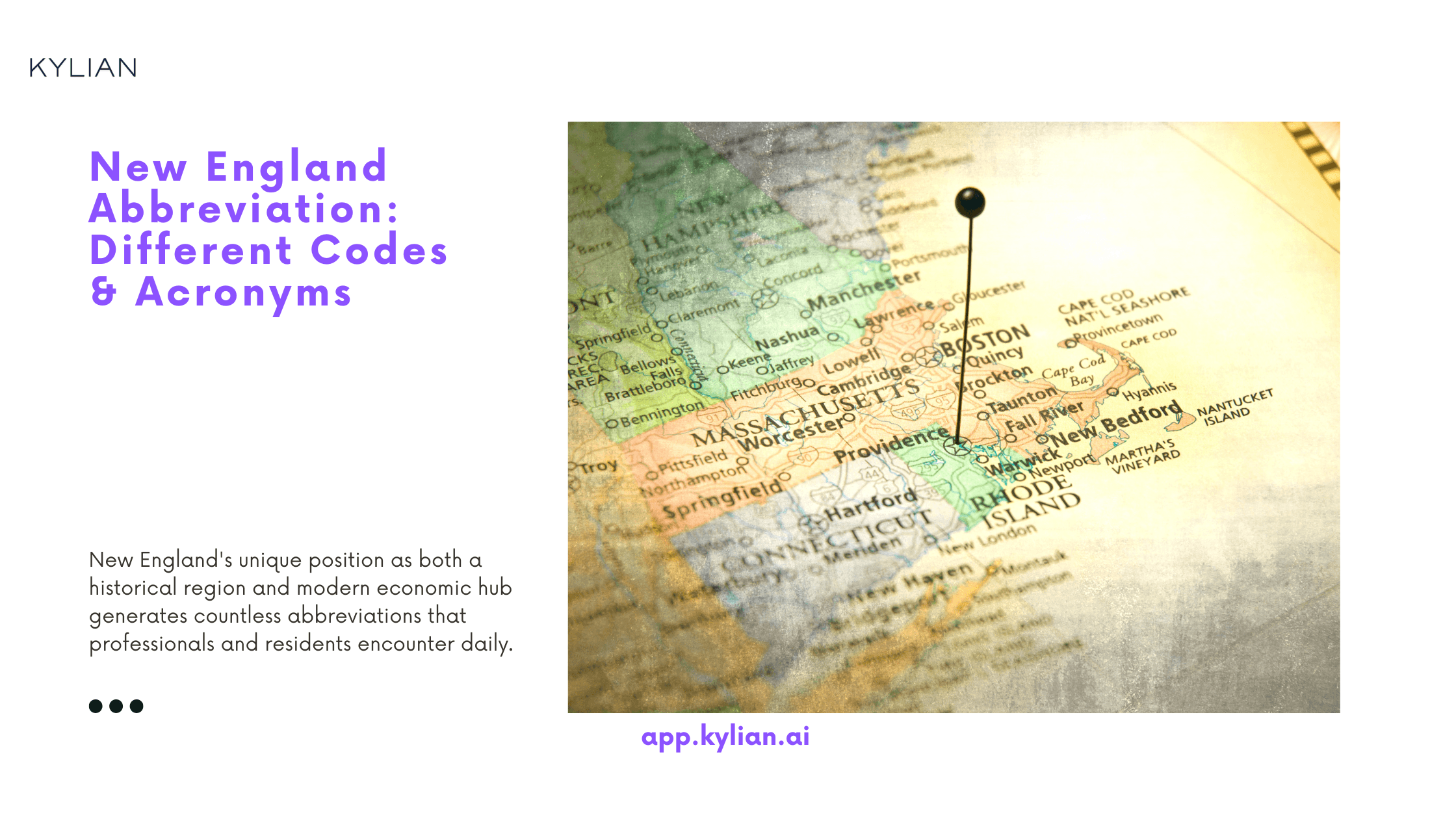

New England Abbreviation: Different Codes & Acronyms
Understanding regional abbreviations becomes crucial when navigating business communications, official documents, or casual correspondence across America's northeastern corridor. New England's unique position as both a historical region and modern economic hub generates countless abbreviations that professionals and residents encounter daily. Whether you're relocating to Massachusetts, conducting business in Connecticut, or simply trying to decode a Vermont address, mastering these abbreviations eliminates confusion and demonstrates regional awareness. The complexity increases when you consider that New England encompasses six distinct states, each with its own governmental, educational, and cultural institutions that generate their own abbreviated forms.


Plural of Basis: Useful Grammar Rules & Examples
The word "basis" creates confusion for writers across proficiency levels because its plural form defies standard English patterns. Most English nouns simply add "-s" or "-es," but "basis" follows Latin etymology rules that many find counterintuitive. Understanding this distinction matters because "basis" appears frequently in academic writing, business communications, and formal discourse. Misusing its plural form undermines credibility and clarity—two elements critical for effective communication.


Reread vs Re-read: The English Grammar Distinction
The English language presents writers with a fundamental choice when expressing the act of reading something again: should you write "reread" or "re-read"? This distinction carries more weight than most realize. "Reread" functions as the standard dictionary form—a single, unified verb meaning to read again. "Re-read," with its hyphen, represents the same concept but emphasizes the prefix structure, making the "again" component more visually apparent to readers. This choice impacts professional communication, academic writing, and digital content creation. Understanding when each form serves your purpose better determines whether your writing appears polished or uncertain.


Bonita vs Hermosa vs Guapa: Spanish Beauty Words Explained
Spanish speakers possess a remarkably nuanced vocabulary for expressing beauty, with three words—bonita, hermosa, and guapa—forming the cornerstone of aesthetic description. While bonita conveys sweetness and approachability, hermosa emphasizes profound, often physical beauty, and guapa suggests attractiveness tied to personal style and confidence. These distinctions matter because choosing the wrong word can fundamentally alter your intended message, potentially causing misunderstandings in both casual conversations and professional contexts. The precision of these terms reflects Spanish culture's sophisticated approach to beauty standards and social interaction. Understanding when to deploy each word demonstrates linguistic competence that extends far beyond vocabulary memorization—it signals cultural awareness and emotional intelligence.


Past Tense of Bleed: Complete Grammar Guide
The verb "bleed" presents one of English grammar's most straightforward yet frequently questioned conjugations. Unlike many irregular verbs that follow unpredictable patterns, "bleed" maintains consistency across its past forms, making it accessible for learners while still requiring precision in usage. Understanding when and how to use "bled" correctly matters because this verb appears in medical contexts, literary descriptions, mechanical terminology, and everyday conversations. The distinction between knowing the form exists and applying it accurately in real-world communication separates functional grammar knowledge from true linguistic competence.
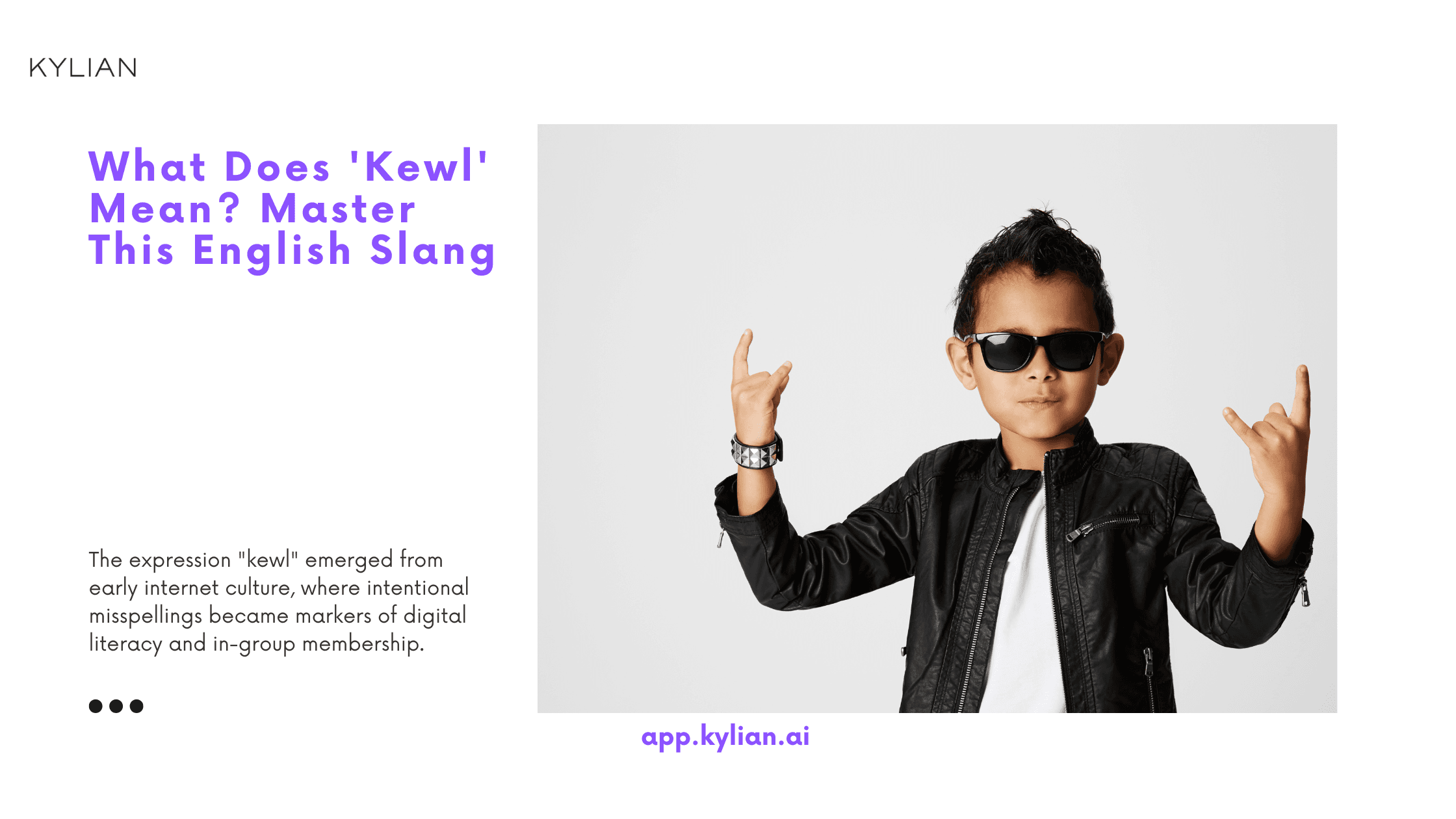

What Does 'Kewl' Mean? Master This English Slang
You've encountered "kewl" in social media posts, text messages, or casual conversations with English speakers, but its meaning remains elusive. This deliberate misspelling of "cool" represents more than simple internet slang—it's a linguistic phenomenon that reflects how digital communication reshapes language evolution. Understanding "kewl" means grasping not just its surface meaning, but the cultural contexts that make it relevant in contemporary English communication. The expression "kewl" emerged from early internet culture, where intentional misspellings became markers of digital literacy and in-group membership. Unlike accidental typos, "kewl" serves specific communicative functions that traditional "cool" cannot fulfill. This distinction matters because misusing slang expressions can signal linguistic outsider status, while proper usage demonstrates cultural fluency that extends beyond grammatical correctness.


Like Father Like Son: English Idiom Meaning & Usage
Native English speakers frequently use "like father, like son" in conversations, yet this idiom's complexity extends far beyond its surface meaning. This expression captures fundamental truths about human nature, heredity, and behavioral patterns that transcend cultural boundaries. Understanding its proper usage, contextual applications, and subtle variations positions you to communicate with the nuanced precision that distinguishes fluent speakers from language learners.


Past Tense of Bite: Complete Grammar Guide
Language precision matters more than ever. Whether you're crafting professional emails, writing academic papers, or simply communicating clearly, understanding irregular verb conjugations like "bite" can be the difference between appearing competent and inadvertently undermining your credibility. The past tense of "bite" follows an irregular pattern that trips up even native speakers. Unlike regular verbs that simply add "-ed," "bite" transforms into "bit" for simple past tense and "bitten" for past participle. This distinction affects how you construct sentences, choose auxiliary verbs, and maintain grammatical consistency across your writing.


10+ Tongue Twisters: Master These Verbal Challenges
Tongue twisters serve a purpose beyond mere entertainment. These linguistic puzzles train your articulatory muscles, improve pronunciation clarity, and enhance speech fluency. Speech therapists use them systematically to address specific phonetic difficulties, while actors employ them to develop crisp diction. The mechanics behind tongue twisters involve rapid repetition of similar sounds that challenge your tongue's positioning and movement patterns. This creates measurable improvements in speech coordination and cognitive processing speed. Research demonstrates that regular practice with tongue twisters can reduce speech errors by up to 23% in non-native speakers within six weeks of consistent training.


Thieves or Thief's? The Definitive Guide to Plural Forms
English grammar contains numerous irregularities that challenge both native speakers and language learners. The word "thief" exemplifies this complexity, transforming in ways that defy standard pluralization rules. Understanding this transformation matters because incorrect usage appears frequently in professional writing, academic papers, and everyday communication. The plural of "thief" is "thieves," not "thiefs." This change follows a specific pattern where words ending in "-f" or "-fe" change to "-ves" in their plural form. Mastering this rule eliminates common errors and demonstrates grammatical precision that enhances your credibility in written and spoken English.


Feed Past Tense: Mastering "Fed" and Its Usage in English
Communication precision matters. When discussing actions that occurred in the past, using the correct verb forms determines whether your message resonates with clarity or creates confusion. The verb "feed" presents a straightforward case study in English past tense formation, yet its applications span far beyond basic grammar rules. Understanding when and how to use "fed" - the past tense of "feed" - becomes essential for anyone seeking to communicate effectively in professional, academic, or everyday contexts. The distinction between "I feed the cat daily" and "I fed the cat yesterday" carries semantic weight that influences how others interpret your timeline and intentions. This article examines the mechanics of "feed" in past tense, explores its practical applications across various contexts, and addresses the nuanced scenarios where proper usage becomes critical for clear communication.
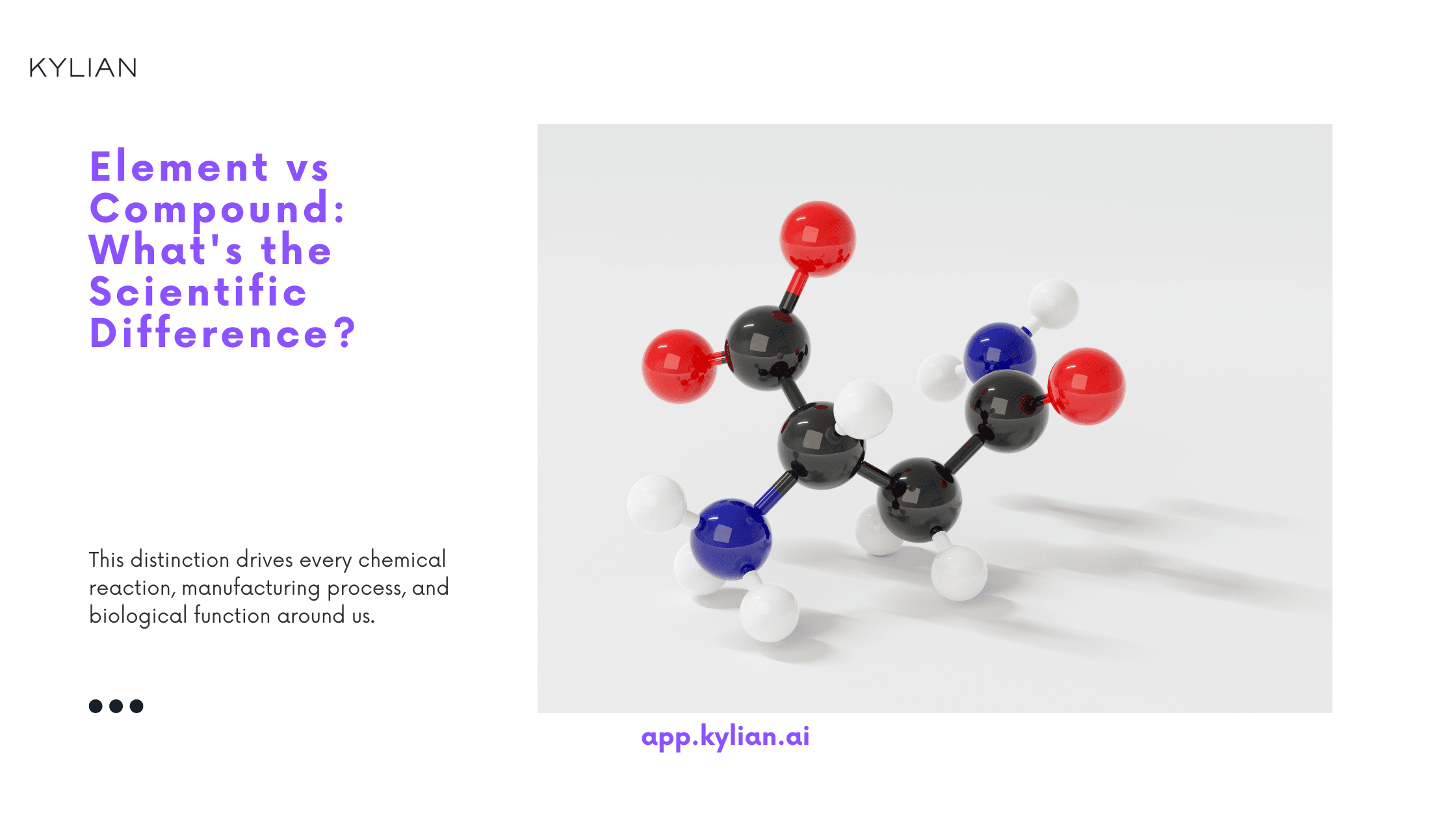

Element vs Compound: What's the Scientific Difference?
Understanding the fundamental building blocks of matter isn't just academic exercise—it's the foundation for comprehending everything from pharmaceutical development to materials engineering. An element represents the purest form of matter, consisting of atoms with identical atomic numbers, while a compound emerges when two or more different elements bond chemically in fixed proportions. This distinction drives every chemical reaction, manufacturing process, and biological function around us. Consider why this matters beyond textbooks. Every medication you take, every material in your smartphone, every breath you draw involves the interplay between elements and compounds. Oxygen exists as an element in your lungs, but becomes part of water compounds in your bloodstream. Silicon stands alone as an element in computer chips, yet transforms into silicon dioxide compounds in glass. These aren't abstract concepts—they're the operational principles governing our technological civilization.


20+ Common Arabic Surnames: Origins, Meanings & Culture
Arabic surnames carry centuries of history, tribal connections, and geographical significance that extend far beyond simple identification. Understanding these family names provides insight into Arab genealogy, cultural traditions, and the complex social structures that have shaped Middle Eastern and North African societies for generations. Whether you're researching your own heritage, studying Arabic culture, or simply curious about the etymology behind these names, this comprehensive exploration reveals the fascinating stories embedded within Arabic surnames. From names indicating tribal affiliations to those describing ancestral professions or geographic origins, each surname represents a unique piece of cultural identity.


Past Tense of File: Complete Grammar Guide
Understanding verb conjugations matters more than most people realize. The word "file" presents a perfect case study for why precision in language directly impacts professional communication. Whether you're documenting legal proceedings, organizing digital assets, or describing administrative processes, knowing exactly how to use "file" in past tense separates competent writers from those who undermine their credibility through grammatical uncertainty. The past tense of "file" is "filed" - a straightforward transformation that follows standard English conjugation patterns. This regularity makes it accessible, yet the verb's multiple meanings across different contexts create complexity that demands deeper analysis. Understanding these nuances becomes critical when your professional reputation depends on clear, accurate communication.
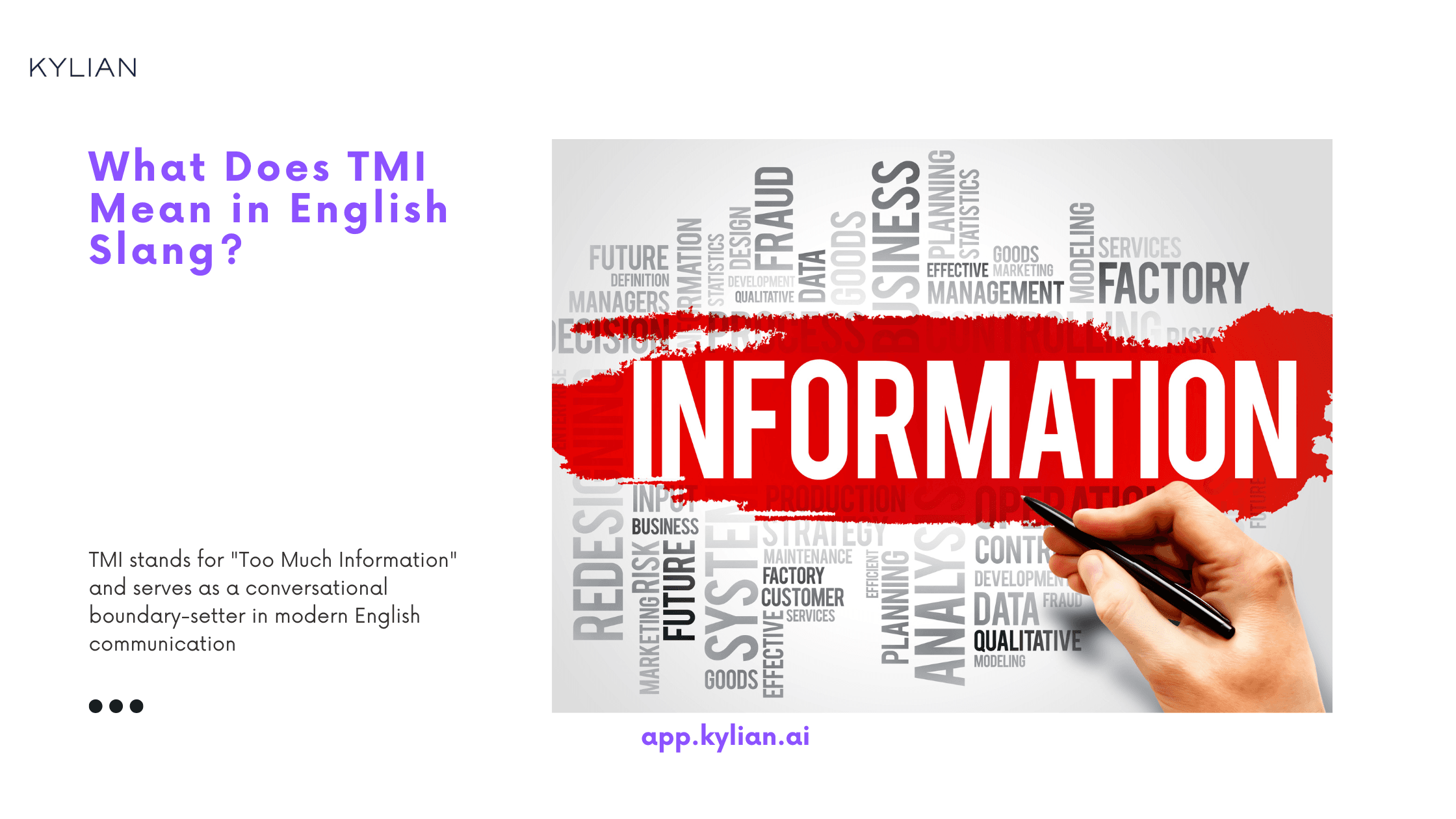

What Does TMI Mean in English Slang?
You've encountered native English speakers using "TMI" in conversations, texts, or social media posts, but you're uncertain about its meaning and proper usage. TMI stands for "Too Much Information" and serves as a conversational boundary-setter in modern English communication. This acronym has evolved from simple internet shorthand into a sophisticated social tool that helps speakers navigate the complex terrain of appropriate information sharing. Understanding TMI isn't just about knowing three letters—it's about grasping the cultural nuances of privacy, social boundaries, and conversational etiquette that define contemporary English-speaking societies. The expression reflects deeper values about personal space, appropriate disclosure levels, and the delicate balance between openness and oversharing that characterizes modern interpersonal communication.


Parent's vs Parents': Mastering English Possessive Plurals
The apostrophe's placement fundamentally alters meaning in English possessives. In English, "parent's" indicates ownership by one parent, while "parents'" signifies possession by multiple parents. This distinction carries significant implications for professional communication, legal documentation, and academic writing where precision determines credibility.


To Infinity and Beyond: What Does This Phrase Really Mean?
You've undoubtedly encountered English speakers enthusiastically declaring "To infinity and beyond!" but find yourself puzzled by its actual meaning and proper usage. This isn't merely another pop culture reference—it's a phrase that has transcended its original context to become a powerful expression of limitless ambition and boundless possibility in modern English discourse. The phrase "To infinity and beyond!" fundamentally represents the concept of pushing past all conceivable limits, embracing unlimited potential, and refusing to accept conventional boundaries. Originally popularized by the character Buzz Lightyear in Pixar's "Toy Story" franchise, this expression has evolved into a legitimate linguistic tool for conveying extraordinary aspiration and relentless determination. Understanding this phrase's nuanced applications becomes crucial when you consider its prevalence across professional environments, creative industries, and casual conversations. The mathematical impossibility embedded within the phrase—since nothing can logically extend beyond infinity—actually strengthens its rhetorical power, creating a deliberate paradox that emphasizes the speaker's commitment to transcending perceived limitations.
![Horny: What Does It Mean? [English]](/_next/image?url=https%3A%2F%2Fcdn.sanity.io%2Fimages%2F147z5m2d%2Fproduction%2F250f2f02b10bb28381331f789040e37bd930dd8f-2240x1260.png&w=3840&q=75)

Horny: What Does It Mean? [English]
English learners often encounter the word "horny" and find themselves navigating its complex meanings with uncertainty. This seemingly simple word carries multiple definitions that span from anatomical descriptions to slang expressions, creating confusion for non-native speakers. Understanding "horny" requires grasping its contextual flexibility and cultural implications—knowledge that proves essential for authentic English communication. The word's dual nature as both a literal descriptor and colloquial expression demonstrates why mastering English extends beyond vocabulary memorization into cultural literacy.


Past Tense of See: Different Forms & Uses Explained
Understanding verb conjugation represents one of the most critical foundations of English mastery. The verb "see" creates particular confusion because its past forms break conventional patterns that learners expect from regular verbs. Native speakers unconsciously navigate these irregular transformations, yet for those acquiring English as a second language, mastering "saw" and "seen" requires deliberate practice and clear understanding of when each form applies. In this article, we'll dissect every aspect of "see" conjugation, from basic past tense usage to complex perfect constructions, providing you with the precision needed for confident communication.


What Does NSFW Mean?
You encounter "NSFW" tags across social media, forums, and workplace communications, yet the meaning remains unclear? This acronym carries significant implications for professional conduct, content consumption, and digital literacy. NSFW stands for "Not Safe For Work" – a warning label that signals content inappropriate for professional environments or public viewing. Understanding NSFW isn't merely about decoding internet slang. It represents a critical boundary between personal and professional digital spaces, affecting workplace productivity, legal compliance, and social etiquette. The term emerged from necessity as digital content consumption shifted from private home computers to public and professional settings.